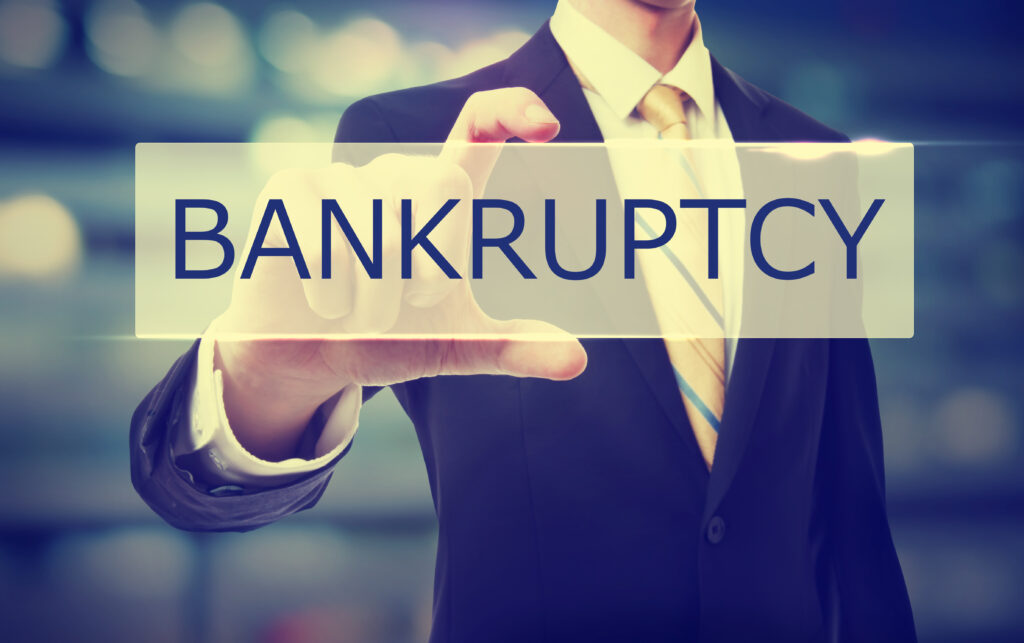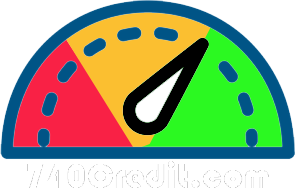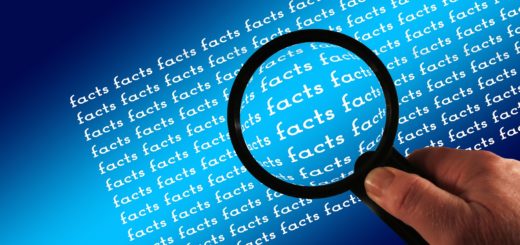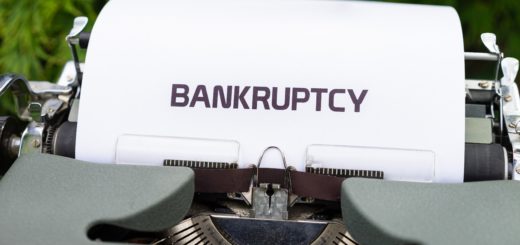Chapter 7 vs. Chapter 13 Bankruptcy
Bankruptcy is one of those topics that nobody wants to become an expert in, but sometimes you have no choice. The good news is that compared to 2021, there have been fewer Chapter 7 and 13 bankruptcies in the U.S. in 2022. The bad news is that the last couple months, bankruptcies have been ticking upward. In September there were 31,190 individual filings for bankruptcy, up from 29,201 a year earlier, a 7% increase.

If you’re trying to make sense of bankruptcy jargon and hoping to understand the differences between the different types of bankruptcies, particularly Chapter 7 and Chapter 13, you’ll want to read on.
Bankruptcy is a legal process, often seen as a last resort for people or businesses, that reduces or eliminates the obligation to pay back certain debts and offers a fresh start.
Bankruptcy can get confusing because different chapters of the bankruptcy code may be applied, depending on whether the debtor is an individual or business and other factors.
There are actually six types of bankruptcy: Chapter 7, Chapter 9, Chapter 11, Chapter 12, Chapter 13 and Chapter 15. Chapter 7 and Chapter 13 bankruptcy are two options that apply to consumers.
What Is the Difference Between Chapter 7 and 13?
“The two most common types of consumer bankruptcy are Chapter 7 and Chapter 13. While a Chapter 7 is commonly referred to as a liquidation, in actuality most, if not all, assets are protected,” says Matthew Zimmelman, a bankruptcy attorney in Garden City, New York.
“Chapter 13 works differently in that you are creating a three- to five-year reorganization plan to pay your debt,” Zimmelman says. “Mortgage arrears, taxes and domestic support obligations are paid in full in the plan while credit cards, personal loans and medical bills can be paid pro rata – at a percentage – depending on household disposable income.”
Most individuals tend to file for Chapter 7; most businesses opt for Chapter 13. But not always. Some business owners opt for Chapter 7, and some homeowners end up filing a Chapter 13 bankruptcy.
Below, we’ll break down the differences a bit more:
Eligibility requirements. Generally, with Chapter 7, your income must fall below the median income level of your state, or you may have to take a means test to determine whether you can repay your debts. In other words, if you’re fairly wealthy, the courts won’t likely approve your bankruptcy. If you truly are tapped out, you will probably be granted a Chapter 7 bankruptcy.
Meanwhile, anyone is eligible for Chapter 13, as long as your unsecured and secured debts are less than $2,750,000.
Discharge rate. This is a term that describes the completion or success rate of a bankruptcy. In 2021, there were 288,327 Chapter 7 filings and 120,002 Chapter 13 filings in the U.S. While there has been an uptick in bankruptcy filings recently, the numbers have, in general, been going down. For instance, in 2017, there were 486,347 Chapter 7 filings and 294,637 Chapter 13 filings.
Property. With a Chapter 7 bankruptcy, you may have to sell certain property you own. With a Chapter 13, you won’t. Most states have bankruptcy exemptions that allow individuals to keep their home and car in a Chapter 7 bankruptcy. That said, it should help your case to make a Chapter 7 bankruptcy if you don’t miss your mortgage payments. If you are wildly behind and want to keep your home, you may instead end up in a Chapter 13 bankruptcy. Obviously, if you’re really in a jam, it’s best to consult a bankruptcy attorney.
Pros of a Chapter 7 or Chapter 13 bankruptcy. You can get a fresh start on many of your debts. You generally won’t have all of your debts forgiven, though. Student loans and taxes are hard to wipe off your ledger in a bankruptcy, for instance. If you owe child support, bankruptcy won’t change that. But many debts, like credit card debts and hospital bills, will be discharged for good.
Cons of a Chapter 7 or Chapter 13 bankruptcy. Expect your credit score to decrease. Chances are, if you’re headed for a bankruptcy, your score may not be in the best shape to begin with. Anecdotally, some lenders have loaned money to individuals after a bankruptcy. Why? Because the lender knows you no longer owe a ton of money and can probably make regular payments once again.
Which Bankruptcy Is Worse for My Credit Score?
That isn’t an easy question to answer. They’re equally bad, and if you’re at the point where you’re considering bankruptcy, your credit score is beyond saving, for now. Whether you take Chapter 7 or Chapter 13, your credit score is going to take a devastating hit.
How devastating a hit is hard to say. Credit scores aren’t the same for everybody. For example, if you got a Chapter 7, you might see your credit score plummet 150 points, and your neighbor who gets a Chapter 13, may see it fall 200 points. Maybe your neighbor had a better credit score and had farther to fall. Maybe your score will only drop about 50 points because after years of struggling, your score was already very low.
Chapter 7 stays on your record for 10 years, while Chapter 13 stays for seven years. That would seem to suggest that Chapter 7 is worse for your credit score, but with Chapter 7, your debt, or at least the unsecured debt, will be gone. That means you can try to start rebuilding it immediately. With Chapter 13, you still have debt. In that sense, you could see your credit score climb faster with a Chapter 7 bankruptcy.
On the other hand, a lender might look at your credit history and see the Chapter 13 bankruptcy and appreciate that you ultimately paid off your loans, and because of that, if circumstances work out, you might rebound faster than if you took out a Chapter 7 bankruptcy.
In other words, it’s impossible to say which path is better. You should seek the advice of a bankruptcy attorney.
Chapter 7 Bankruptcy
How it works.Going through the bankruptcy process isn’t difficult, according to Dai Rosenblum, an attorney and a counselor of law in Butler, Pennsylvania.
“It is truly simple to file a Chapter 7 fresh-start bankruptcy,” Rosenblum says. “You find a competent bankruptcy lawyer, you pay their fee, you fill out a questionnaire, you review your paperwork for completeness and accuracy, you have a five-minute creditors meeting, you wait approximately two months to get a piece of paper in the mail that discharges all of your debts. That’s it. All of my clients say the same thing: ‘I can’t believe how easy this was. I wish I had done this a long time ago.'”
How do I find out if I qualify for Chapter 7 bankruptcy? As noted, you’ll likely take a means test determining that you truly do need to declare bankruptcy, and the rules for who is eligible are different in every state. Again, consulting a bankruptcy attorney is the best way to go.
Can I lose property in Chapter 7 bankruptcy? Yes. Again, everyone’s situation is different. But while you could lose property, many people are able to keep their property in a Chapter 7 bankruptcy, especially if it’s their primary home. It often depends on the state you live in.
Chapter 13 Bankruptcy
How it works. According to Rosenblum, “Chapter 7 is always preferred over Chapter 13. You file a Chapter 13 because you have to, not because you want to.”
You and an attorney – and the courts or circumstances – will decide what you file.
But generally, Rosenblum says, you’ll file Chapter 13 if you’re behind on your mortgage, or if you are over the median income in your state and don’t qualify for a Chapter 7. He says you may also end up filing for Chapter 13 if you have too much equity in an asset, such as a house or a business, and you want to pay your creditors yourself over time rather than risk losing your asset to a Chapter 7 trustee to liquidate.
You might also file Chapter 13 if you owe a lot of back taxes, Rosenblum adds.
How much of my debt will I have to repay if I file for Chapter 13 bankruptcy? That’s impossible to say. It depends on the debt you owe, and the courts have to approve your repayment plan.
That said, you are going to feel some sense of relief when you file. “A Chapter 13 is not as good as a Chapter 7, but Chapter 13s are wonderful,” Rosenblum says.
He adds that you are guaranteed a 0% interest rate on any unsecured debt that you’re paying off.
How long will my repayment plan last if I file for Chapter 13 bankruptcy? Three to five years, depending on how much debt there is and how fast you want to pay it off.
Can I keep my home with a Chapter 13 bankruptcy under foreclosure? Yes, that’s definitely possible. That’s because when you file for a Chapter 13, you get what’s called an automatic stay.
“The automatic stay stops all creditor activity dead in its tracks,” Rosenblum says, adding that it even stops the IRS.
He adds: “If a creditor has recently seized an asset, such as a vehicle or a bank account, they have to give it back. There are exceptions. In law, there are always exceptions and often exceptions to the exceptions. But that’s the gist of it.”
So if you receive a foreclosure notice, filing a Chapter 13 will basically freeze time from a financial standpoint, and it could allow you to work out a plan to pay your mortgage lender so you can catch up on back payments.
Can I use my retirement to fund a Chapter 13 repayment plan? You may want to, but it’s not the best idea since you’d be creating a future problem in which you someday have less money for your retirement. In any case, you will have to get permission from the bankruptcy court.
Can a Chapter 13 bankruptcy help me pay back the IRS?You can use a Chapter 13 bankruptcy to help you pay back the IRS, though if that’s your only creditor, you may want to discuss a repayment plan without declaring bankruptcy. You may also want to attempt an offer in compromise, which can allow a taxpayer to settle their tax debt for less than the full amount that they owe.
Which Should I Use: Chapter 7 or Chapter 13 Bankruptcy?
There’s no way to know without talking to an attorney first. What’s right for some people may be wrong for you. That said, most people go with Chapter 7, according to Carlo Sabatini, a bankruptcy attorney and managing partner at Sabatini Freeman LLC, in Dunmore, Pennsylvania.
Generally speaking, Sabatini says, “Chapter 7 is less expensive than Chapter 13 and much faster. A Chapter 7 is usually over within about four months. A Chapter 13 takes at least three years. But for some consumers, Chapter 13 offers some relief that is not available in Chapter 7.”
For instance, he says some homeowners use Chapter 13 to recover a vehicle that has been recently repossessed or to completely cancel certain second mortgages.
Bottom line: If you have a choice in the matter, after you’ve analyzed the difference between Chapter 7 and 13, you take whichever route is right for you. And with any luck, the bankruptcy will allow you to write a new, better chapter in your financial life.

.gif)


